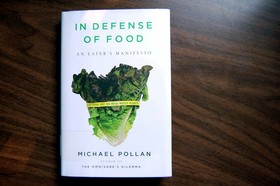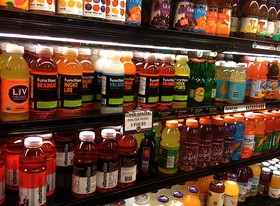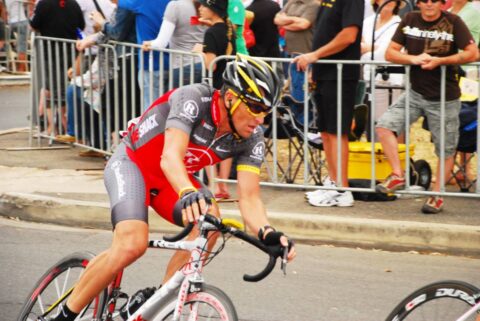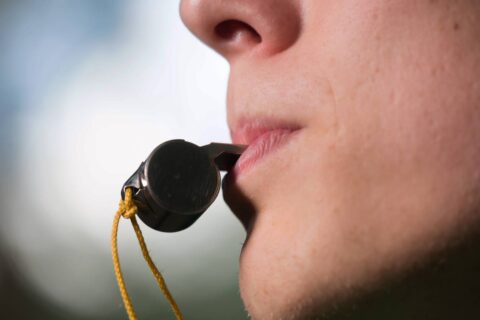 I recently read 2 interesting books, both by Michael Pollan:
I recently read 2 interesting books, both by Michael Pollan:
In both books, Pollan identifies and challenges the underlying premises of the modern American food industry (“the industrialization of eating”), which most people accept without question.
Pollan also provides an eye-opening history of how our culture of food has dramatically changed since the days of our grandparents, “What is driving such relentless change in the American diet? One force is a 32-billion-dollar food-marketing machine that thrives on change for its own sake.”
The books inspired me to take inventory of everything I put into my body, including sports nutrition products.
Gatorade & Sports Drinks

As an endurance athlete, I consume large quantities of sports drinks, bars, gels, and other related items.
Right now I’m looking at the ingredients on the back of my Gatorade bottle:
- Water
- High fructose corn syrup (glucose-fructose syrup)
- Sucrose syrup
- Citric acid
- Natural flavor
- Salt
- Sodium citrate
- Monopotassium phosphate
- Modified food starch
- Red 40
- Glycerol ester of rosin
My bottle of Gatorade would fail miserably when it comes to Michael Pollan’s suggested test for identifying “real food.”
Pollan identifies 2 categories of food:
- “Real food” that comes from nature; and
- “Edible foodlike substances” that come from science.
My Gatorade fails Pollan’s “real food” test in 2 ways:
“Don’t eat anything your great grandmother wouldn’t recognize as food.”
“Avoid food products containing ingredients that are: a) unfamiliar, b) unpronounceable, c) more than five in number, or that include d) high fructose corn syrup.”
I decided to investigate further high fructose corn syrup (HFCS), which is in most sports drinks.
More About High Fructose Corn Syrup
 High Fructose Corn Syrup (HFCS) is not the ordinary corn syrup found on the grocery store shelf, nor is it the fructose naturally found in fruits and honey. HFCS is a highly refined clear liquid derived from corn starch.
High Fructose Corn Syrup (HFCS) is not the ordinary corn syrup found on the grocery store shelf, nor is it the fructose naturally found in fruits and honey. HFCS is a highly refined clear liquid derived from corn starch.
Food manufactures love to use it because of its long shelf life and its relative low cost.
Basically, HFCS is an artificial additive that’s cheaper and easier for manufacturers of sodas and fruit juices to use. As mentioned, it’s also common in sports drinks.
Research shows that HFCS puts people at risk for metabolic syndrome. According to the Mayo Clinic:
Metabolic syndrome is a cluster of conditions that occur together, increasing your risk for heart disease, stroke and diabetes. Having just one of these conditions — increased blood pressure, elevated insulin levels, excess body fat around the waist or abnormal cholesterol levels — contributes to your risk of serious disease. In combination, your risk is even greater. Source
Research by the U.S. Department of Agriculture (USDA) reveals that high fructose diets shorten the life span of laboratory mice from the normal 2 years to a mere 5 weeks.
Alternatives To High Fructose Corn Syrup
There are options for sports drinks and other products that do not contain high fructose corn syrup:
Liv Organic Sports Drink is one example.
See why Nancy Dince created the Liv Organic Sports Drink.
The 3 Bar is an example of an energy bar with no artificial additives. It is wheat and gluten free, diabetic-friendly, safe for hypoglycemics, vegans and vegetarians.
There is also the custom YouBar, for which you choose the ingredients.
Also, MixMyGranola, which is featured in Triathlete Magazine‘s “Gear Bag” section.
You can also make your own sports drink.
What’s In Your Sports Drink, Bar, or Gel?
Certainly, there is more to sports nutrition than sports drinks, bars and gels, but I hope this post makes you more aware of what kinds of sports nutrition products you use, as well as other natural alternatives.
Here are some sites and information to explore further:
Triathlon Nutrition: Vegetarianism
Organic Eating for Triathletes
I’m over 40 years old, but I don’t give up easily. It wasn’t too long ago that I was exploring the idea of doing my first triathlon. If I can do it, you can too! I'm proof that with a little determination and training, you can get a great deal of fulfillment participating in marathons, triathlons… even ultramarathons.








